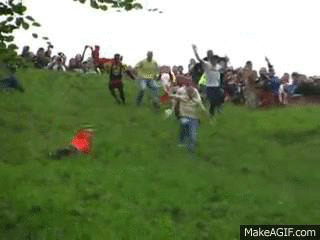Just a reminder that Post Malone still has Always Tired tatted across his face. What could it mean?? A disavowal of hustle culture? A pledge to the grind? A tag from the streets?
“I live in Salt Lake City now, so I like to piss off the Mormons.” -Post Malone on his face tattoo
A classic deflection from Posty (and tbh that could be all there is to the story), but that’s not going to stop me from digging deep on our relationship to rest for the sake of a good tub talk.
Because guess what? I’m always tired too. Even on the days when I get a full night of sleep, I’m fried at the end of most days. Like eyes fogged over, throbbing in the back of my skull, fried.
Some of that is maybe definitely that my body isn’t meant to be staring at screens for 8 str8 hours, but I think the more interesting question is: is there another way? Is living a restful life achievable or just an aspiration?
Rest is for high performers
Some guy did a study1 on high performers, and found that one of the things that separates these killers from regular old schlumps like you and me is that they take rests. On average once per hour, they step away from the doing and just take some deep breaths, go for a walk, or go sit on the pooper and scroll TikTok. JK not that last one because that’s not rest. That’s like taking a break from sprinting uphill, but on the break you’re doing a plank.
Resting is a practice, and I feel like I’ve forgotten how to do it—or maybe I never really learned how? All my life I‘ve been given positive reinforcement for doing more things in a day, week, quarter, year. But how come rest isn’t celebrated, even when it’s linked to greatness? It’s a well known secret in the NBA that the GOATs take 90+ min naps every gameday and often sit out most of the 4th quarter.
As much as I wanna be like Steph, whether or not I end up taking rests is usually contingent on how much I have backlogged in my to do list. I subconsciously run the cost-benefit analysis of taking a break, and more often than not, the weight of future responsibilities tips the scales and keeps me grinding.
But learning more about how rest and high performance are complimentary (not contradictory) has me reconsidering whether I’m weighing things correctly.
Here are a few small things I’m trying to practice, regardless of how busy my day is:
💆This 18 min Yoga Nidra (NSDR) on Insight Timer: Somewhere in between a nap and a meditation. I do this after lunch and it’s like a massage for my brain
🧘♂️This 6 min meditation from Open: Nature sounds, soothing music, and a guided medi: the perfect combo to help me ground before or after a meeting (The 30D free trial is worth it)
🙆 This corny 5 min mobility routine I got from a LinkedIn DM
🚶♂️Walk around the block
Doing things is different than getting things done
George Mack writes about a concept called the busy trap,2 best defined by that feeling at the end of the day or week when you are exhausted by all the things you did, but you still have those most important things you want to get done sitting at the bottom of your To-Do list… mocking you, haunting your dreams, unfazed by all your productivity hacks and cups of coffee.
So what’s the way out of the busy trap? Self help books will suggest goal-setting, accountability groups, and timeboxing your calendar for what matters most. But that assumes you know what matters most, and thats an assumption I can’t always be so sure of.
When I am stuck in the busy trap, I feel like these poor blokes: yeeting myself down a hill, gaining momentum, but out of control and perpetually on the verge of tearing an ACL. And guess what? That’s someone else’s cheese I’m chasing.

The things that I really want to get done (i.e. writing, personal projects, passions) fall by the wayside unless I find the space to step back and clarify where I am spending my time and energy. Maybe rest can provide that space and clarity.
Rest can be scary
I think the harder truth to swallow is that I like being tired. I treat my energy like a per diem allowance, one that I’ll spend any type of way just to make sure I’m not leaving anything on the table. Seeing a long list of to-do items crossed off at the end of the day gives me a satisfaction that reinforces the idea that I’m doing a good job in life.
Resting, on the other hand, isn’t so easy for me. I get the Sunday Scaries bad sometimes, but it’s often less about upcoming responsibilities and more about the hard questions that have room to creep in with the space on an unbusy Sunday:
Am I happy with how I’m spending my time every day? Am I living a life that’s aligned with my values? Do I need to make a big change in direction?
When I’m locked in, running through to-do lists, it feels good to be making progress, even if that progress isn’t in the direction I want.
Rest for its own sake
I don’t think rest is just a tool for achieving more. I’ve seen how rest can be the thing that I am chasing with all my productivity.
For example, the schedule of a meditation retreat looks something like this:
Sit, walk, sit, eat, sit, walk, sit, eat…
But in the midst of all this non-doing, I’ve felt real glimpses of the deep peace and security that seem so elusive in the rest of my life.
But that’s just a meditation retreat, that’s not real life where things will fall apart if I just sit around all day. -Devil’s Advocate
Fair point DA, and it’s hard not to have an all or nothing mindset when it comes to rest. But I’m trying to start small and consistent and see what happens. On the days when I remember to take breaks, I feel just a little more clear thinking, compassionate and mindful. These qualities are pretty abstract and take time to add up to anything noticeable, but I want to be the type of person who trusts that these things matter. The type of person who looks back at the end of my life happy with how I was generous with my time and attention. For me, practicing resting is a vote for that type of person.
Rest can be social
I don’t think rest can be something we pursue alone. I’m writing this post as a way to hold myself accountable AND invite you all to join me in this practice. Let’s get this rest movement out of the hot tub and into the world. Run clubs have had their moment, but what would Rest Club look like?
Linking up with pals mid day to just lay in the park
Facetiming your friends from the couch after going home from “early” the function
Send the group chat a pic of your midday walk
Rest doesn’t have to mean you’re flaking on things and retreating to a monastic life. Let’s make rest cool. Let’s make Post Malone see that he doesn’t have to be always tired to be ballin Iverson on yewwwwww
Support my writing by leaving a comment! Here are some prompts for yew:
If you had to get a face tat, what are you tatting?
How do you work in rest to your life?
Are you down with Rest Club?






This tub talk hit HARD, considering I read it whilst quite literally inhaling my lunch in between morning and afternoon patient care. I love this idea of scheduled downtime. For my busy brain, which very much tries to tell me to maximize "productivity," it is much more tangible to set a goal of things like lunchtime walk or post-work meditation versus abstractly telling myself to chill out.
Also, does anyone else feel this generational transition from embracing the grind to avoiding it? Like my parents and other Boomers seem to brag about their hustle, while Milennials and Gen Z seem to gloat about funemployment and months or years off work. I do wonder if it's a true society paradigm shift or just a function of our stage of life...
I can really relate to when you mentioned, "When I’m locked in, running through to-do lists, it feels good to be making progress, even if that progress isn’t in the direction I want." It's as if the to-do lists are a distraction from what you really want to be doing. But taking the time to step back (easier said than done) and ask yourself if what you're "making progress" on is what you actually want to be making progress on is so important. Great read!